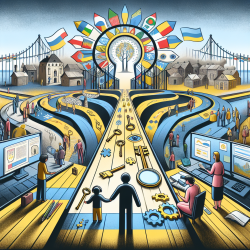Introduction
The COVID-19 pandemic has reshaped the way we interact with the world, and young people, in particular, have been significantly impacted. A recent study, "The Mental Health and Social Media Use of Young Australians during the COVID-19 Pandemic," sheds light on the mental health challenges faced by youth and their increased reliance on social media for support. This blog explores how practitioners can leverage these findings to enhance their skills and better support young individuals in distress.
Understanding the Impact
The study highlights that over 40% of young Australians reported severe levels of anxiety and depression during the pandemic. Gender-diverse individuals were particularly affected. Social media usage skyrocketed, with 96% of participants using it daily, and two-thirds reporting an increase in usage. One-third of the respondents used social media to seek support for suicidal thoughts or self-harm, while half supported others through these platforms.
Opportunities for Practitioners
As practitioners, understanding the role of social media in young people's lives is crucial. Here are some ways to integrate these insights into practice:
- Embrace Digital Platforms: Recognize the potential of social media as a tool for mental health support. Encourage young clients to use these platforms responsibly and guide them in finding credible resources.
- Develop Resources: Create and disseminate high-quality resources tailored for help-seekers and help-givers on social media. This can include guidelines for safe online communication and identifying reliable support networks.
- Promote Safe Practices: Educate young people on the risks associated with social media, such as exposure to harmful content, and provide strategies to mitigate these risks.
- Collaborate with Social Media Companies: Advocate for social media platforms to implement features that promote user safety and mental well-being, especially during crises like pandemics.
Encouraging Further Research
The study underscores the need for ongoing research to better understand the nuances of social media's impact on mental health. Practitioners are encouraged to stay informed through conferences, publications, and webinars, and to contribute to research efforts by sharing insights from their practice.
Conclusion
The findings from "The Mental Health and Social Media Use of Young Australians during the COVID-19 Pandemic" offer valuable insights for practitioners aiming to support young people effectively. By leveraging social media responsibly and advocating for safer digital environments, we can help mitigate the mental health challenges exacerbated by the pandemic.
To read the original research paper, please follow this link: The Mental Health and Social Media Use of Young Australians during the COVID-19 Pandemic.










